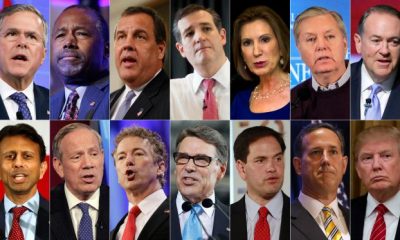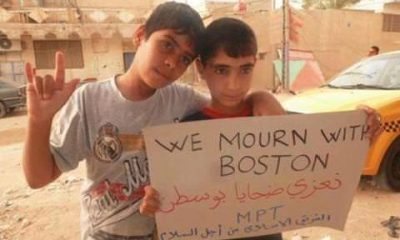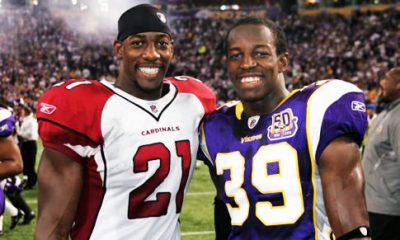London, England (CNN) — Think of the origins of that staple of modern life, the cup of coffee, and Italy often springs to mind.
But in fact, Yemen is where the ubiquitous brew has its true origins.
Along with the first university, and even the toothbrush, it is among surprising Muslim inventions that have shaped the world we live in today.
The origins of these fundamental ideas and objects — the basis of everything from the bicycle to musical scales — are the focus of “1001 Inventions,” a book celebrating “the forgotten” history of 1,000 years of Muslim heritage.
“There’s a hole in our knowledge, we leap frog from the Renaissance to the Greeks,” professor Salim al-Hassani, Chairman of the Foundation for Science, Technology and Civilisation, and editor of the book told CNN.
“1001 Inventions” is now an exhibition at London’s Science Museum. Hassani hopes the exhibition will highlight the contributions of non-Western cultures — like the Muslim empire that once covered Spain and Portugal, Southern Italy and stretched as far as parts of China — to present day civilization.
Here Hassani shares his top 10 outstanding Muslim inventions:
1. Surgery
Around the year 1,000, the celebrated doctor Al Zahrawi published a 1,500 page illustrated encyclopedia of surgery that was used in Europe as a medical reference for the next 500 years. Among his many inventions, Zahrawi discovered the use of dissolving cat gut to stitch wounds — beforehand a second surgery had to be performed to remove sutures. He also reportedly performed the first caesarean operation and created the first pair of forceps.
2. Coffee
Now the Western world’s drink du jour, coffee was first brewed in Yemen around the 9th century. In its earliest days, coffee helped Sufis stay up during late nights of devotion. Later brought to Cairo by a group of students, the coffee buzz soon caught on around the empire. By the 13th century it reached Turkey, but not until the 16th century did the beans start boiling in Europe, brought to Italy by a Venetian trader.
3. Flying machine
“Abbas ibn Firnas was the first person to make a real attempt to construct a flying machine and fly,” said Hassani. In the 9th century he designed a winged apparatus, roughly resembling a bird costume. In his most famous trial near Cordoba in Spain, Firnas flew upward for a few moments, before falling to the ground and partially breaking his back. His designs would undoubtedly have been an inspiration for famed Italian artist and inventor Leonardo da Vinci’s hundreds of years later, said Hassani.
4. University
In 859 a young princess named Fatima al-Firhi founded the first degree-granting university in Fez, Morocco. Her sister Miriam founded an adjacent mosque and together the complex became the al-Qarawiyyin Mosque and University. Still operating almost 1,200 years later, Hassani says he hopes the center will remind people that learning is at the core of the Islamic tradition and that the story of the al-Firhi sisters will inspire young Muslim women around the world today.
5. Algebra
The word algebra comes from the title of a Persian mathematician’s famous 9th century treatise “Kitab al-Jabr Wa l-Mugabala” which translates roughly as “The Book of Reasoning and Balancing.” Built on the roots of Greek and Hindu systems, the new algebraic order was a unifying system for rational numbers, irrational numbers and geometrical magnitudes. The same mathematician, Al-Khwarizmi, was also the first to introduce the concept of raising a number to a power.
6. Optics
“Many of the most important advances in the study of optics come from the Muslim world,” says Hassani. Around the year 1000 Ibn al-Haitham proved that humans see objects by light reflecting off of them and entering the eye, dismissing Euclid and Ptolemy’s theories that light was emitted from the eye itself. This great Muslim physicist also discovered the camera obscura phenomenon, which explains how the eye sees images upright due to the connection between the optic nerve and the brain.
7. Music
Muslim musicians have had a profound impact on Europe, dating back to Charlemagne tried to compete with the music of Baghdad and Cordoba, according to Hassani. Among many instruments that arrived in Europe through the Middle East are the lute and the rahab, an ancestor of the violin. Modern musical scales are also said to derive from the Arabic alphabet.
8. Toothbrush
According to Hassani, the Prophet Mohammed popularized the use of the first toothbrush in around 600. Using a twig from the Meswak tree, he cleaned his teeth and freshened his breath. Substances similar to Meswak are used in modern toothpaste.
9. The crank
Many of the basics of modern automatics were first put to use in the Muslim world, including the revolutionary crank-connecting rod system. By converting rotary motion to linear motion, the crank enables the lifting of heavy objects with relative ease. This technology, discovered by Al-Jazari in the 12th century, exploded across the globe, leading to everything from the bicycle to the internal combustion engine.
10. Hospitals
“Hospitals as we know them today, with wards and teaching centers, come from 9th century Egypt,” explained Hassani. The first such medical center was the Ahmad ibn Tulun Hospital, founded in 872 in Cairo. Tulun hospital provided free care for anyone who needed it — a policy based on the Muslim tradition of caring for all who are sick. From Cairo, such hospitals spread around the Muslim world.
For more information on muslim inventions go to: muslimheritage.com. For more information about the exhibition at London’s Science Museum go to: science museum.org.uk













Azizur Rahman Dulu
January 30, 2010 at 9:15 PM
The leaders of the muslim population based countries should know and realise.
hello
August 17, 2012 at 8:40 PM
what the hell r u talking about
Arif
January 31, 2010 at 11:58 AM
This would go good in the Sunday Open Thread, especially as it’s just a link.
Thanks for sharing it though.
Michael Meadon
January 31, 2010 at 4:59 PM
There is no doubt Muslims contributed a great deal to modern life and was a beacon of light during Europe’s Dark Ages, the piece above is clearly nonsense in places. Muslims invented music? Made contributions to, sure. Improved, sure. But most certainly not invented. By any reasonable standard, the Greeks invented the university, surgery goes back to prehistoric times, coffee was discovered in Ethiopia (http://en.wikipedia.org/wiki/History_of_coffee), aviation goes back to the ancient Greeks (http://en.wikipedia.org/wiki/History_of_flight#Ancient_Greece), toothbrushes were used in prehistory (http://en.wikipedia.org/wiki/Toothbrush#History), etc.
There’s no need to exaggerate Islam’s achievements – these are plentiful.
Masry
February 1, 2010 at 1:28 PM
These objections would be answered changing “inventions” at the beginning of the list to “inventions and major contributions”, which is a fair statement.
Ibn Firnas was the first to actually fly with his machine as the article said. AlQarawiyin is the oldest continuously running university till today. The Prophet Muhammad peace be upon him “popularized” the toothbrush, also as in the article.
God willing, the Muslims will once again be a beacon of light, once they get out of their current rut. There are positive signs, thank God.
peace
Zoheb Ahmad
February 1, 2010 at 8:46 PM
Good Lord! Anybody who uses Wikipedia as a source to argue a factual point has lost the plot. That’s all I want to say.
Michael Meadon
February 2, 2010 at 2:38 AM
@Mastry. Sure. I was objecting to the hyperbole, I wasn’t saying Muslims haven’t made major contributions. (Though I still think you’re somewhat exaggerating).
@Zoheb. I know there facts independently – you know, from books and stuff – I linked to Wikipedia for ease of reference. If you think Muslims *invented* music (for example) you’ll have to give me an argument and some serious citations (and explain all those musical instruments archaeologists have found that Muhammad’s invention of Islam)…
Jagger
April 14, 2010 at 7:25 AM
Michael Meadon, you’ve completely misunderstood what the article is saying. It never claimed that Muslims invented music or surgery, but that they made inventions within these broad fields. As for your other more specific points:
-The Greeks never had anything resembling a university. They had higher-education academies, but not universities. The first universities, i.e. higher-education institutions that award academic degrees, were the Madrasahs that appeared in the Islamic world from the 9th century.
-The coffee beans were discovered in Ethiopia, but they never brew coffee drinks from it. The first evidence of brewing and drinking coffee comes from Yemen in the 9th century.
-The Greeks never had aviation, but they only had myths like Icarus. The first heavier-than-air flying machine was built by Abbas Ibn Firnas in Islamic Spain during the 9th century.
-The only thing I’d agree with you on is the toothbrush, as the article itself even says it was not invented by Muslims.
a
February 1, 2010 at 8:38 AM
Muslims made toothbrushes
Umm...
February 1, 2010 at 9:17 AM
Umm…I thought the caesarean section was in some way linked to Caesar, you know that Greek lad who lived around 100 BC.
Zoheb Ahmad
February 1, 2010 at 8:56 PM
Haha. Well it isn’t actually. Look it up.
Gwenny
February 3, 2010 at 10:01 AM
I did look it up. It predates the Romans. It was used as an extreme measure to save the unborn child and only used when the mother was dead or beyond saving. The first recorded successful Caesarian delivery was in 1500 in Switzerland.
Ironic
February 1, 2010 at 2:35 PM
It’s a shame, all they do nowadays is come up with clever ways to destroy everything.
amad
February 2, 2010 at 3:41 AM
Normally, we’d just delete this type of comment, as it is clearly reaks in prejudice. But I’d like to take you up on it:
So, please tell me which nations have the largest and most lethal weapons of mass destruction? Hmm, than than Pakistan’s few nuclear weapons, the answer would be non-Muslims.
Who has actually used a nuclear weapon? Hmm, the Muslim states of America, huh?
Who has actually destroyed more infrastructure and more lives and property? Shock and awe anyone?
So, clearly the rag-a-tag terrorists kill a few people, destroy a little property, but it pales in comparison to what the enlightened West has done in terms of real destruction, “good intentions” aside!
Not to forget the alleged destruction being caused upon the climate by the great Western nations… Muslims can at least claim to be the lowest contributors in that! (Even though I don’t think that is a real positive feather in our hat)
Gwenny
February 3, 2010 at 10:17 AM
I’m very disappointed with this article. I was hoping to have something to put on my Facebook, where I have a large number of young friends, to counteract the negative that they hear everyday. But this so much half truth and out and out untruth that you’d think you were reading a Christian site. /sigh Dental care goes back to pre-modern humans and earliest literary references to toothbrushes is from China around BCE 1600. Hospitals were not uncommon in Greece and Rome. The “modern musical scales” are not that much different from those of ancient peoples, based on the bone pipes found recently.
So I’ll keep looking. I talk to them all the time on Ventrilo (many of them play World of Warcraft with me and I have talked to them about how the Draenei, a peaceful and wise race, are based on early Muslim myths and culture . . .their leader is even The Prophet) about history and how, if it hadn’t been for the Arabs, much more of Europe’s literary and science legacy would have been lost. I share poetry and stories. It’s unfortunate that the Muslim world is currently undergoing a Dark Age, but we can hope for an Enlightenment such as followed the European Dark Ages where tolerance and the thirst for knowledge overwhelm the violence and ignorance and Islam is restored as a bright beacon of learning.
Jagger
April 14, 2010 at 7:34 AM
Gwenny, while I agree with your point on the toothbrush, your other points about the hospital and musical scales are incorrect.
Ancient Greece and Rome had healing temples, not hospitals in the modern sense. These Greek and Roman healing temples did not actually find scientific cures for illnesses, but largely relied upon superstition (praying, chanting, meditating, fasting, bathing, sacrifice, etc.) to “cure” their patients. They also lacked any system of certifying physicians with qualifications, thus anyone could become a “physician”. It was not until the medieval Islamic world that we start seeing institutions that closely resemble what we would today call “hospitals”.
As for “modern musical scales”, what the article is referring to is the modern Solfege musical notation (Do-Re-Mi) which resembles the Arabic alphabetic notation used in Arabic music.
Ahmad
August 12, 2012 at 2:02 AM
Hey can you E-mail me all of the finding you had on muslim Inventions?
Xsoccerdude08x@gmail.com
Mark
May 13, 2010 at 5:15 AM
Absolute rubbish…
Ahmed Hassan
May 13, 2010 at 11:45 AM
I think what matters is not what muslims did but what muslims do today. Tilka ummatun qad khalat.
Zoya
December 29, 2012 at 6:56 AM
THIS IS THE FACT….. SOO TRUE
WELL (MARK) this is true you have no knowledge abut the world so and read over the worlds history
Who ever disbelieve this need to read worlds history